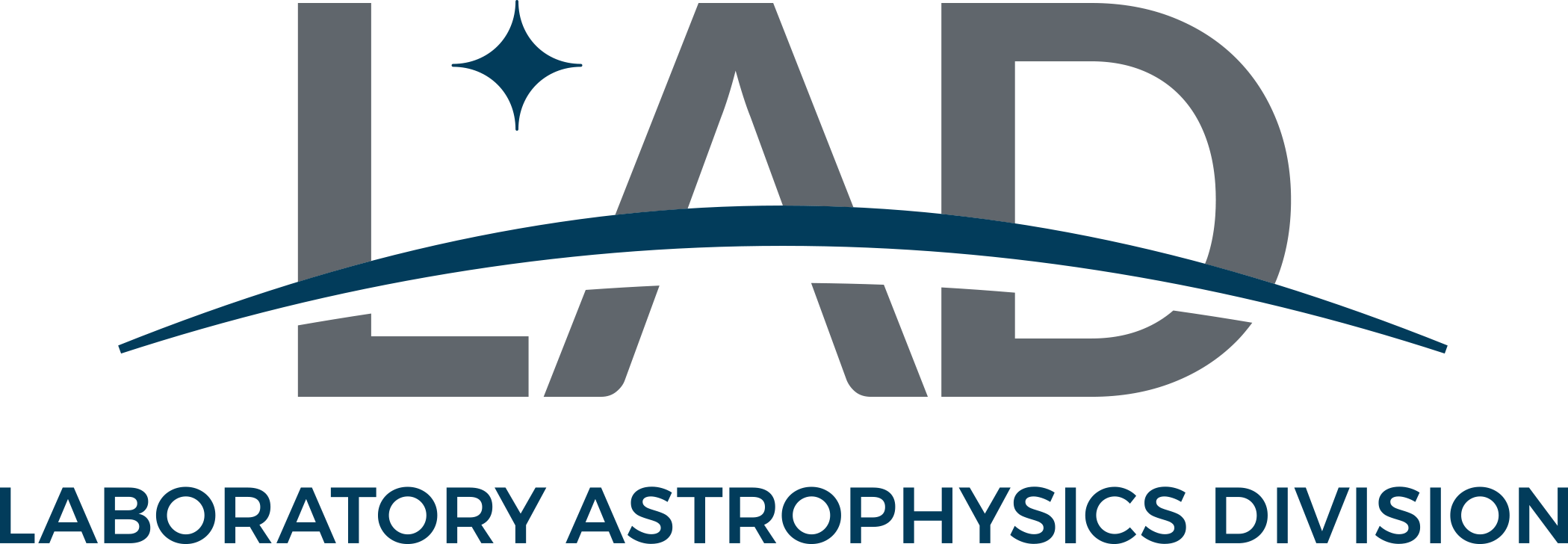You are here
2016 Annual Laboratory Astrophysics Division of the AAS Meeting
2016 Annual Laboratory Astrophysics Division of the AAS Meeting
San Diego, CA
June 13-16, 2016
http://aas.org/meetings/aas228
The fourth LAD meeting will be devoted to the interplay between laboratory astrophysics and other fields in astronomy, planetary science and related sciences. The meeting will be held jointly with the 228th Meeting of the AAS, and feature the inaugural 2015 Laboratory Astrophysics Prize talk by Lou Allamandola, a talk by the 2016 Laboratory Astrophysics Prize winner Peter Beiersdorfer, and a talk by the inaugural LAD Early Career Prize Winner Francois Lique. The sessions will cover the full range of LAD topics, with special focus on interplay with observatories such as ALMA, Astro-H (launching Feb 12th!), and NuSTAR.
The session titles and invited speakers are listed below; each session has room for contributed talks. A parallel 4-day long poster session, with all posters up the entire time, is also planned.
Deadlines:
Abstracts: March 3, 2016
Late Abstracts: April 19, 2016
Early Registration: February 22, 2016
Regular Registration: March 3, 2016
Sessions:
Bridging Laboratory & Astrophysics: Dust & Ices with ALMA & Astro-H
Monday, 13 June 2016: 10:00 am-11:30 am
Laboratory astrophysics is the Rosetta Stone that enables astronomers to understand and interpret the cosmos. This session will focus on the interplay between astrophysics with theoretical and experimental studies into the underlying dust and ice processes, which drive our Universe, focusing on connections to ALMA or Astro-H observations.
Confirmed Speakers:
- Lou Allamandola, NASA/Ames Research Center [Inaugural Laboratory Astrophysics Prize Talk]
- Lia Corrales, MIT
Bridging Laboratory and Astrophysics: Molecules seen with ALMA I
Monday, 13 June 2016: 2:00 pm-3:30 pm
Laboratory astrophysics is the Rosetta Stone that enables astronomers to understand and interpret the cosmos. This session will focus on the interplay between astrophysics with theoretical and experimental studies into the underlying molecular processes, which drive our Universe, with special attention to connections with ALMA observations.
Confirmed Speakers:
- Viviana Guzman, Harvard
- Paola Caseli, MPE
Bridging Laboratory and Astrophysics: Molecules seen with ALMA II
Tuesday, 14 June 2016: 10:00 am-11:30 am
Laboratory astrophysics is the Rosetta Stone that enables astronomers to understand and interpret the cosmos. This session will focus on the interplay between astrophysics with theoretical and experimental studies into the underlying molecular processes, which drive our Universe, with special attention to connections with ALMA observations.
Confirmed Speakers:
- Francois Lique, University Le Havre [Inaugural LAD Early Career Prize Talk]
- Lucy Ziurys, University of Arizona
Bridging Laboratory and Astrophysics: Planetary Physics seen with ALMA and Astro-H
Tuesday, 14 June 2016: 2:00pm-3:30 pm
Laboratory astrophysics is the Rosetta Stone that enables astronomers to understand and interpret the cosmos. This session will focus on the interplay between astrophysics with theoretical and experimental studies into the underlying planetary science processes, which drive our Universe, with special attention to observations done with ALMA and Astro-H.
Confirmed Speakers:
- Martin Cordiner, NASA/Goddard Space Flight Center
- Geoff Blake, CalTech
Bridging Laboratory and Astrophysics: Atomic Physics seen with Astro-H
Wednesday, 15 June 2016: 10:00 am-11:30 am
Laboratory astrophysics is the Rosetta Stone that enables astronomers to understand and interpret the cosmos. This session will focus on the interplay between astrophysics with theoretical and experimental studies into the underlying atomic processes, which drive our Universe, with special attention to observations done with Astro-H.
Confirmed Speakers:
- Peter Beiersdorfer, Lawrence Livermore National Lab [2016 Laboratory Astrophysics Prize Talk]
- Renata Cumbee, University of Georgia
Bridging Laboratory and Astrophysics: Atomic, Nuclear, & Particles Physics with Astro-H and NuSTAR
Wednesday, 15 June 2016: 2:00pm-3:30 pm
Laboratory astrophysics is the Rosetta Stone that enables astronomers to understand and interpret the cosmos. This session will focus on the interplay between astrophysics with theoretical and experimental studies into the underlying nuclear processes, which drive our Universe, with special attention to observations done with Astro-H and NuSTAR.
Confirmed Speakers:
- Javier Garcia, Harvard-Smithsonian Center for Astrophysics
- Steven Boggs, UC-Berkeley
Science Organizing Committee: Farid Salama, Randall Smith, Steven Federman, Paul Drake, Daniel Wolf Savin, John Black, Nancy Janet Chanover, Gianfranco Vidali, Karin Oberg, Edward Brown, Jan Cami, Oswald Siegmund
